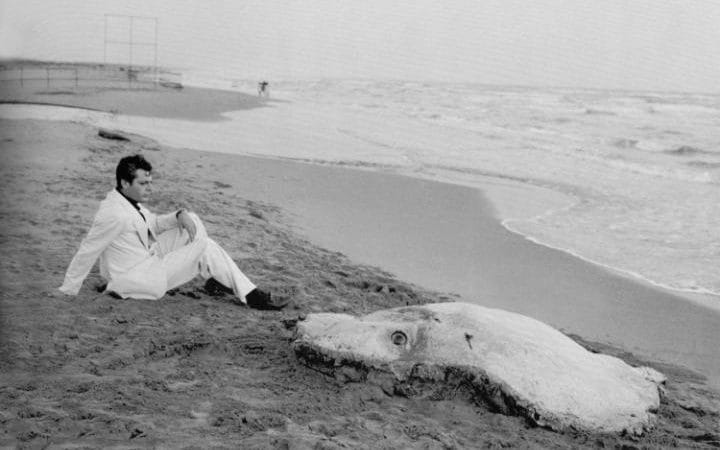A once-pristine sandy beach that featured in the classic film La Dolce Vita has been condemned as a “cesspool”, covered in rubbish and thousands of bits of plastic.
Passoscuro beach, north of Rome, was used as the setting for the poignant closing scene of the movie, when Marcello Mastroianni, the star of the film, watches fishermen haul in a giant dead manta ray.
The scene is symbolic of the disillusionment felt by Mastroianni’s playboy character, whose joyless pursuit of “la dolce vita”, or the sweet life, is the main theme of the 1960 film by Federico Fellini.
He plays an aspiring writer who abandons his literary ambitions to become a gossip columnist, following the shallow, materialistic escapades of the rich and famous around Rome’s smart Via Veneto.
Mastroianni’s matinee idol good looks encapsulated the glamour of post-war Italy but conservationists say the beach that appeared in his most famous film is now ugly and polluted.
Beachgoers park their cars illegally on the dunes and the sand is covered in plastic bottles, old shoes, cotton ear buds and discarded nappies.
“This part of the coast is distinguished by illegal building, unregulated sewage, a lack of water treatment and the presence of plastic rubbish,” said Roberto Scacchi, the regional president of Legambiente, an environmental organisation.
“The numerous cotton ear buds are a symptom of a poorly-managed sewage system. People continue to throw them down the lavatory and they are not filtered out by purifiers,” Mr Scacchi told La Stampa newspaper, which described the beach as “a cesspool”.
Groups of volunteers descend on the beach from time to time, filling black plastic sacks with rubbish, but within a few days of the cleanups, the detritus returns – dumped by locals and swept in from the sea.
Fertiliser run-off from farmland is flushed into the sea along fetid streams fringed with bright yellow algae.
The beach is located in Lazio region, which is among the worst five of Italy’s 20 regions in terms of beach pollution, illegal fishing and unauthorised building, according to a new report by Legambiente.
The four other regions in the top five – Campania, Puglia, Calabria and Sicily – all have a strong mafia presence, with conservationists saying the unscrupulous development of beaches is often in the hands of criminal organisations.
Source: http://bit.ly/2tSQN0X











